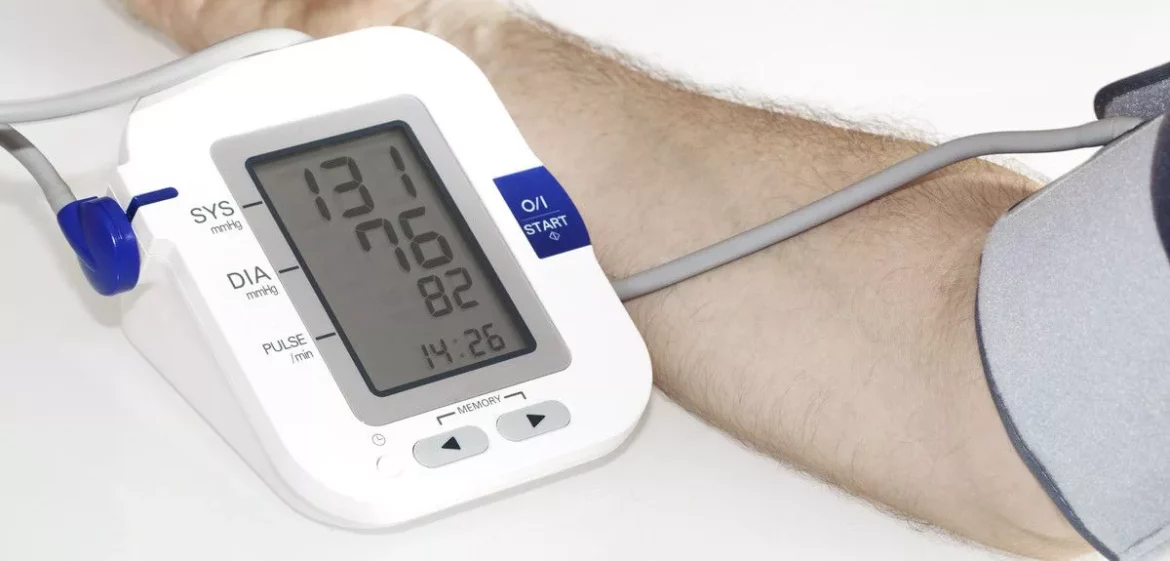Blood pressure, the force exerted by circulating blood on the walls of the body’s arteries, is a crucial indicator of cardiovascular health. It’s normal for blood pressure to fluctuate throughout the day in response to various activities, emotions, and environmental changes. However, significant and frequent spikes or drops can be concerning, indicating potential health issues. Understanding the factors that cause blood pressure to spike up and down can help in managing and maintaining healthy levels.
What Causes Blood Pressure to Spike Up And Down?
Circadian Rhythms
Blood pressure naturally follows a daily pattern, known as circadian rhythm. It tends to be lower at night during sleep and rises a few hours before waking up. Blood pressure usually peaks in the middle of the afternoon and then drops again in the evening. These fluctuations are normal and are influenced by the body’s internal clock.
Physical Activity
Engaging in physical activity causes blood pressure to rise temporarily as the heart pumps more blood to supply muscles with oxygen. This is a normal response and beneficial in the long run, as regular exercise helps to lower resting blood pressure over time. Conversely, blood pressure drops during rest and relaxation periods.
See Also: What to Do If Your Blood Pressure Suddenly Rises
Emotions and Stress
Emotional responses such as stress, anxiety, anger, and excitement can lead to temporary spikes in blood pressure. The body’s “fight or flight” response releases stress hormones like adrenaline and cortisol, which cause the heart to beat faster and blood vessels to narrow, raising blood pressure.
Health-Related Factors
Hypertension
Chronic high blood pressure, or hypertension, can cause frequent spikes in blood pressure. Factors contributing to hypertension include genetics, diet, physical inactivity, obesity, and excessive alcohol consumption. Managing these factors is crucial in preventing dangerous blood pressure fluctuations.
Medications
Certain medications can cause blood pressure to rise or fall. Nonsteroidal anti-inflammatory drugs (NSAIDs), decongestants, and some antidepressants can raise blood pressure. On the other hand, medications such as diuretics and antihypertensives are designed to lower blood pressure. It’s important to follow medical advice and monitor blood pressure when taking new medications.
Medical Conditions
Various medical conditions can influence blood pressure stability. These include:
Heart Disease: Conditions like arrhythmias and heart failure can cause irregular blood pressure patterns.
Kidney Disease: Impaired kidney function affects fluid and sodium balance, leading to blood pressure fluctuations.
Diabetes: Poor blood sugar control can damage blood vessels and nerves that help regulate blood pressure.
Lifestyle And Dietary Influences
Diet
Dietary choices significantly impact blood pressure. High intake of salt (sodium) can cause the body to retain water, increasing blood pressure. Conversely, potassium helps to balance sodium levels and reduce blood pressure. Diets high in processed foods, red meat, and sugar can contribute to hypertension, while a diet rich in fruits, vegetables, whole grains, and lean proteins supports healthy blood pressure levels.
Caffeine and Alcohol
Caffeine can cause a temporary spike in blood pressure, especially in people who are not regular coffee drinkers. Alcohol consumption, particularly in large amounts, can raise blood pressure both short-term and long-term. Moderate drinking is key to avoiding these effects.
Smoking
Nicotine in cigarettes raises blood pressure and heart rate temporarily. Long-term smoking damages blood vessels and contributes to persistent hypertension, increasing the risk of heart disease and stroke.
Environmental And External Factors
Temperature
Extreme temperatures can affect blood pressure. Cold weather causes blood vessels to constrict, leading to higher blood pressure.
Conversely, hot weather can cause blood vessels to dilate, resulting in lower blood pressure. Individuals with hypertension or other cardiovascular conditions should take precautions during extreme weather conditions.
Altitude
High altitudes can lead to increased blood pressure due to lower oxygen levels. The body compensates by producing more red blood cells and constricting blood vessels, which can raise blood pressure.
People living at or traveling to high altitudes may need to monitor their blood pressure more closely.
Managing Blood Pressure Fluctuations
Regular Monitoring
Regularly checking blood pressure helps to identify patterns and triggers for fluctuations. Home blood pressure monitors are useful tools for keeping track of daily variations and understanding the impact of lifestyle changes and medications.
Healthy Lifestyle Choices
Adopting a healthy lifestyle is essential for managing blood pressure:
Diet: Following a balanced diet rich in fruits, vegetables, whole grains, and lean proteins while limiting salt, sugar, and saturated fats.
Exercise: Engaging in regular physical activity, such as walking, swimming, or cycling, for at least 150 minutes per week.
Stress Management: Practicing relaxation techniques like deep breathing, meditation, yoga, or tai chi to manage stress levels.
Avoiding Smoking: Quitting smoking to reduce the harmful effects of nicotine on blood pressure and overall cardiovascular health.
Moderating Alcohol and Caffeine: Limiting alcohol and caffeine intake to prevent spikes in blood pressure.
Medical Management
For individuals with hypertension or other cardiovascular conditions, medical management may include:
Medications: Prescribed antihypertensive medications to help maintain stable blood pressure levels.
Regular Check-Ups: Routine medical check-ups to monitor blood pressure and adjust treatment plans as needed.
Specialist Care: Consulting specialists such as cardiologists or nephrologists for conditions affecting the heart or kidneys.
Conclusion
Understanding what causes blood pressure to spike up and down is essential for maintaining cardiovascular health. While some fluctuations are normal, significant and frequent changes can indicate underlying health issues that require attention.
By monitoring blood pressure regularly, making healthy lifestyle choices, and seeking appropriate medical care, individuals can manage their blood pressure effectively and reduce the risk of complications.

